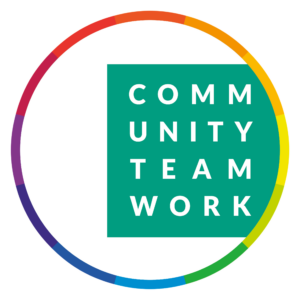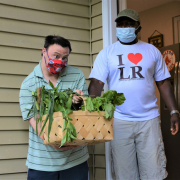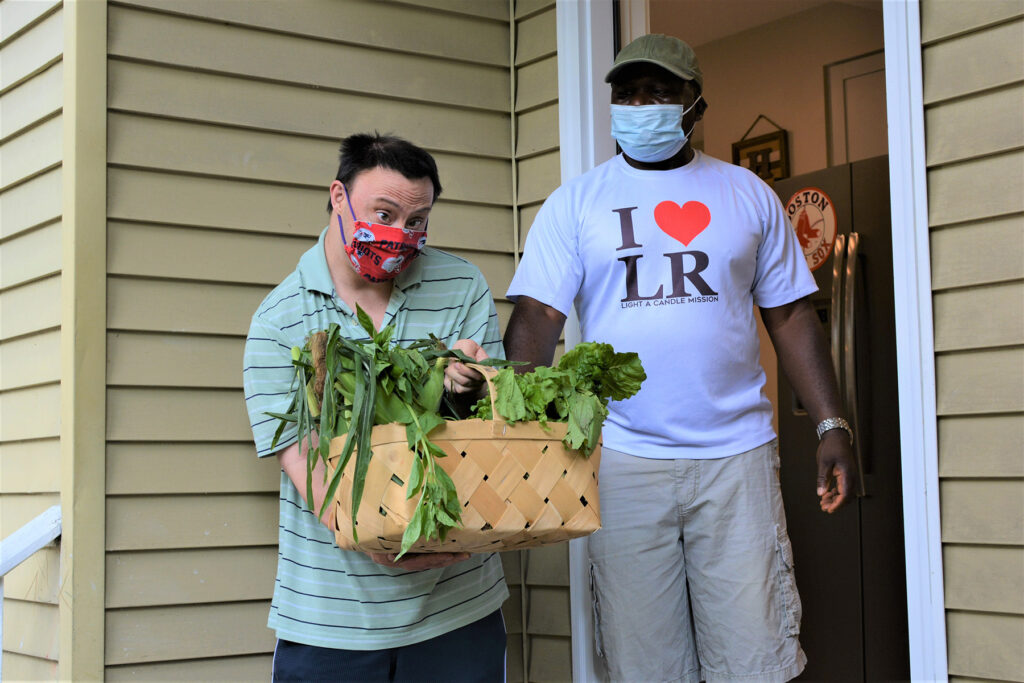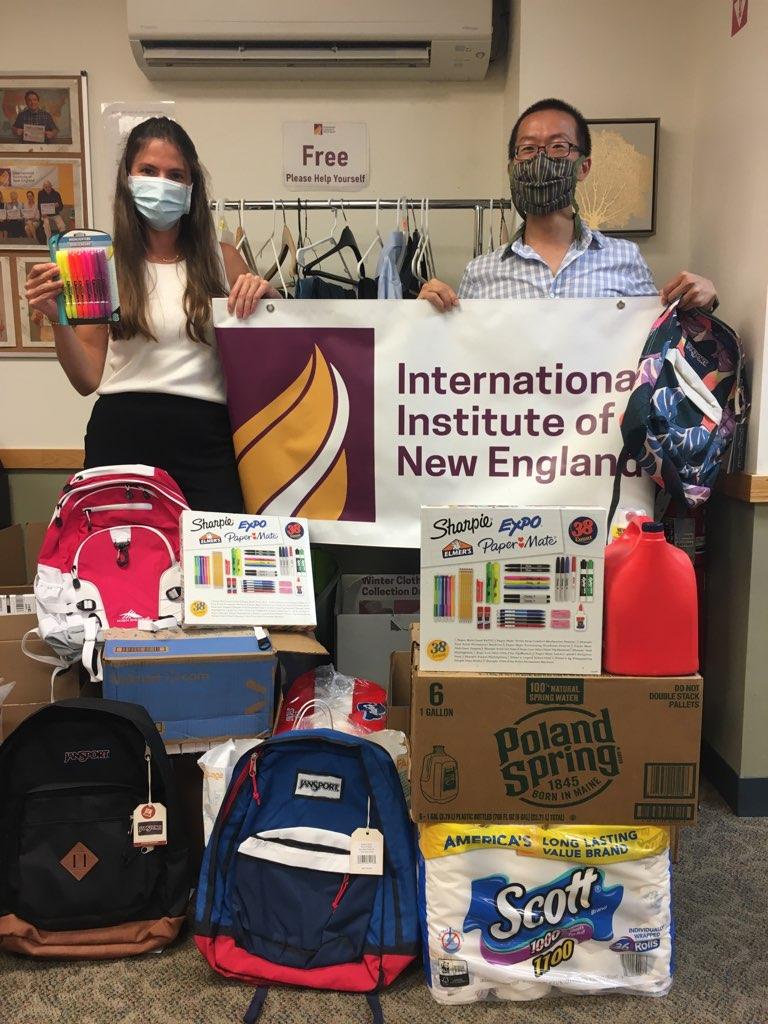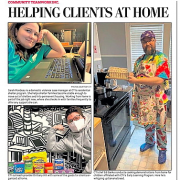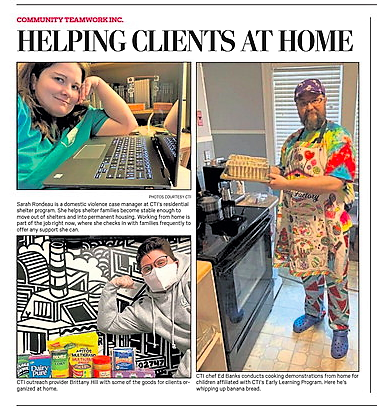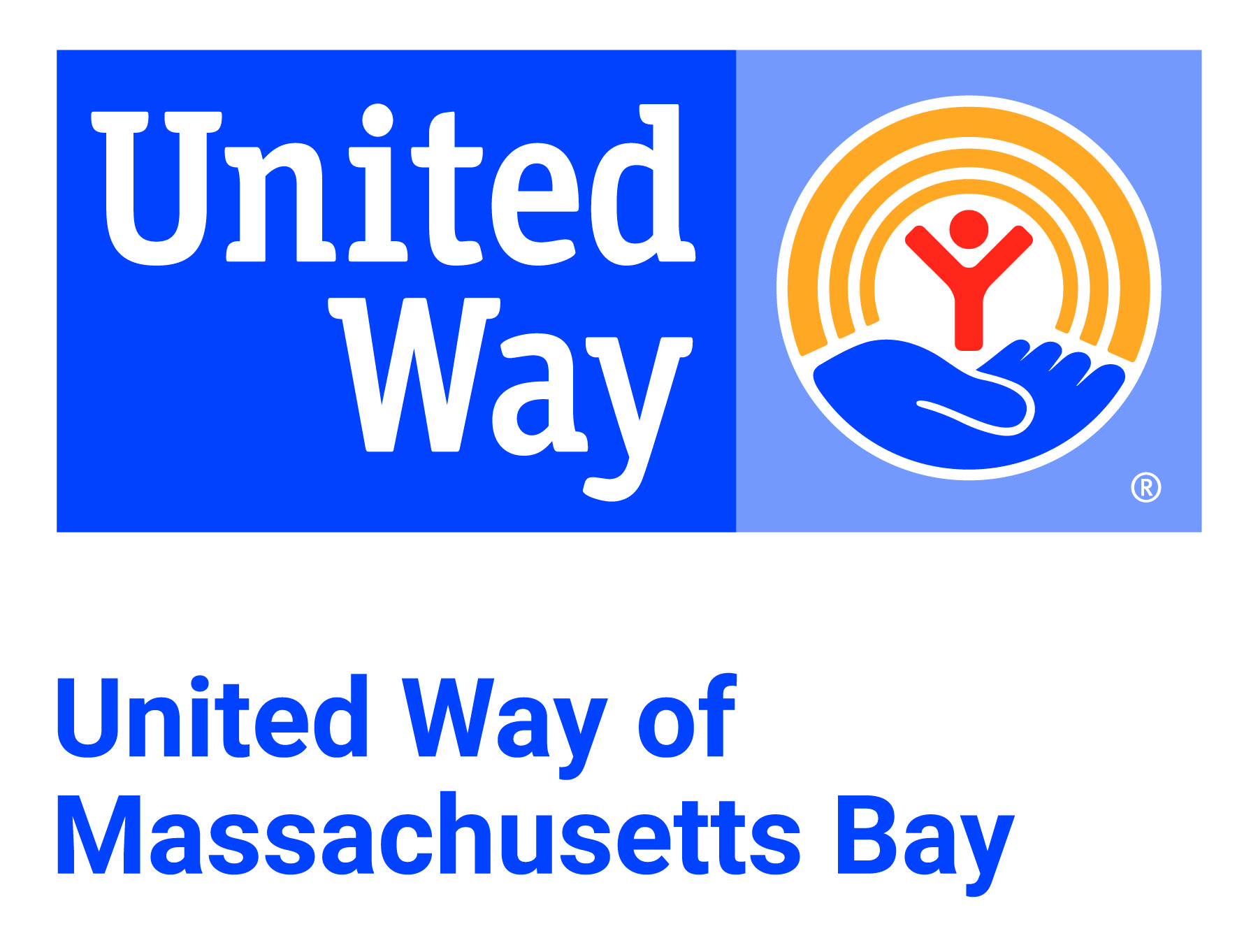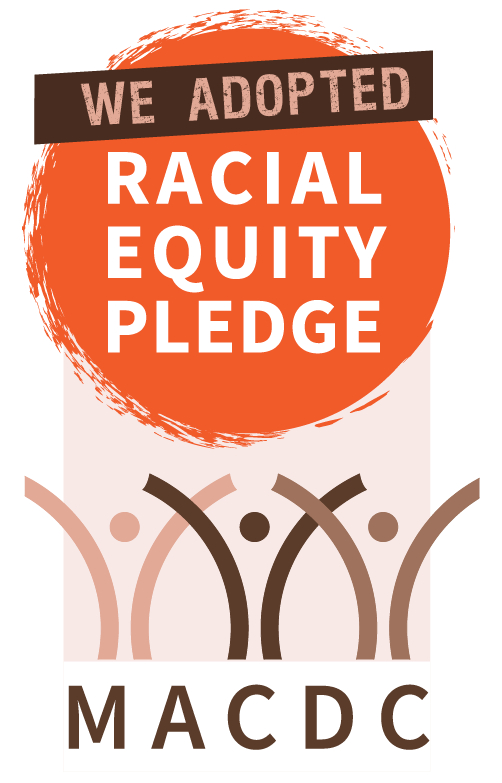
Opening Safely Should be a Top Priority
EARLY EDUCATION CENTERS
by Karen Frederick and Meghan Adams Siembor
LOWELL SUN 9/28/2020 B: Focus Page B01 1/2
While public school educators and school systems are still debating how to safely return ( or not) to classrooms, early education programs were allowed to open in July, and if subsidized by the commonwealth were required to open by the end of July to be eligible for continued payment to care for and educate the state’s most at risk, low income children. This allows working parents who have no option of remote work to continue to provide for their families and support our
local economy. On July 8, Community Teamwork opened our doors and safely phased in up to 50% of our previous
enrollment by the end of July. This past Friday we were informed by the Department of Early Education and
Care that we could increase our classroom group size to 100% capacity, from 10 to 20 children. We have
seen no data or public health information which supports this increase.
With the benefit of only one month of reopening data, flu season on the way, and a projected spike sometime
in the fall of Covid-19 virus cases, we feel this is premature and dangerous to our staff, children and their
families — especially as schools are determining in some cities that even 25% of enrollment is not safe.
Looking at this new directive with a racial equity lens is even more disturbing. Our staff represent our
population. There are a majority of people of color who are already hit harder by this virus, as are our students
and their families. The commonwealth and the federal govern
 Julia Malakie / LOWELL SUN
Julia Malakie / LOWELL SUN
We were informed by the Department of Early
Education and Care that we could increase our
classroom group size to 100% capacity, from 10 to
20 children.
We have seen no data or public health information
which supports this increase.
Education
FROM PAGE 1B
ment that subsidize our programs for low income and at-risk children and families have a responsibility to
ensure the safety and sustainability of our programs. Without our high-quality early education and care
programs, the achievement gap will grow even higher. Parents, businesses, and our economy need us. We
have long talked about the important role of early education and child care in children’s academic
success, and we have long recognized the role child Just last week mobile, rapid Covid testing was made
available to public schools ( not yet open.) We applaud this initiative but ask why this has not been made
available to our programs, which have been open since July.
Across the sate, some early education programs are waiting up to 10 days for test results and several days
to even get appointments for testing. It is crucial that mobile rapid testing for staff, children and their
families be made available to programs already operating and serving infants through school age
children in the commonwealth. Opening safely should be a top priority Early Education Centers
9/28/2020 B: Focus
2/2
care plays in the economy. Parents cannot work without safe, affordable, high quality programs. Many
workers and single parents working in nursing homes, hospitals, supermarkets, restaurants shelter,
group homes, and child care centers are low wage workers who depend on state and federally funded
subsidized programs to care for and educate their children.
The subsidized system of the state’s Department of Early Education and Care was fragile prior to Covid,
with state rates as much as 30% lower than private rates. Across the state, our programs are currently
looking at when to close down classrooms, lay off staff, and even close entire centers.
Stable, adequate funding must be made available so that our programs are still here when it is safe to reopen
to capacity. This is a critical time which will determine the future of our field and parents’ access to affordable,
quality education and care for their infants through school age children. Improving educational outcomes for children and
achieving racial equity in our communities starts with quality early education. And supporting families working hard at essential jobs to provide food, housing and opportunity to their families is essential to our economy.
We call on the commonwealth and federal government to adequately and stably fund Early Education
Programs and to provide essential resources such as testing to ensure their future existence and to ensure
our economy can fully recover. Karen Frederick, CEO, and Meghan Adams Siembor, Division Director, Child
and Family Services at Community Teamwork
© 2020 lowell sun. Please review new arbitration language here. 9/27/2020
Powered by TECNAVIA
